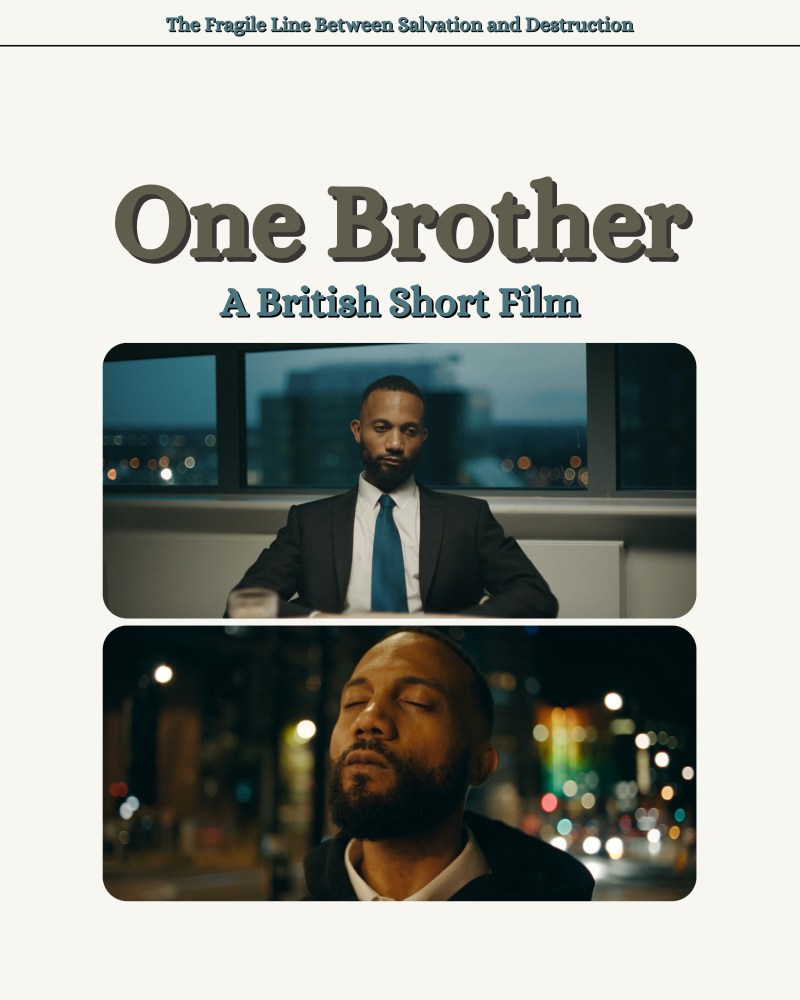One Brother - Oskar Nilsson | Writer & Lead: Micah Abna | Runtime: 17 Minutes | Genre: Drama | Country: UK
When an ex-convict struggles to rebuild his life, his fragile bond with his schizophrenic younger brother becomes both his salvation and his undoing in a world that offers no second chances.

Oskar Nilsson’s "One Brother" is a short that cuts deeper than most features. At seventeen minutes it has no space for indulgence, and yet it manages to feel vast—carrying the weight of a whole life, a whole relationship, in the smallest of gestures. It’s a film about love disguised as survival, and survival disguised as love, and the impossible cost of carrying both at once.
What strikes first is the atmosphere. Nilsson directs with a restraint that never dulls the tension but refuses easy dramatics. There is a constant sense of pressure in the air, not from plot mechanics but from life itself—the inherited cycles, the systems that don’t forgive, the fragility of bodies and minds in a world that won’t slow down for them. The environment here feels less like backdrop and more like an invisible antagonist: a presence that shapes the brothers’ choices long before they make them.
At the heart of it all are two extraordinary performances. Micah Abna carries Jadon with a quiet, weathered dignity, a man defined not by his past mistakes but by the exhaustion of constantly being punished for them.
His strength comes through not in the louder moments but in the smallest ones—those fleeting flashes where his protective instincts betray just how raw and vulnerable he really is. Tyler Kinghorn, meanwhile, gives Tarron an emotional unpredictability that never feels like caricature. His portrayal of schizophrenia is not reduced to mannerisms or symptoms but instead rooted in a deeply human fragility: fear, tenderness, paranoia, and an aching need to be understood. Together, their dynamic feels lived in, jagged, and painfully authentic.
Nilsson shapes their story as a tragedy, but not a theatrical one. There’s no manipulative swell of music, no grand narrative device forcing the outcome. Instead, the inevitability comes from character, from circumstance, from the unspoken knowledge that in certain lives the margin for error is non-existent. Every choice Jadon makes is bound by love, and yet each step only narrows the space around him. By the time the film closes, the tragedy feels not like a shock but like a truth we’ve been dreading all along.
What makes "One Brother" so compelling is its refusal to compromise. It neither glamorises nor patronises, never reducing its characters to victims or statistics. It’s tender, but unsentimental. Political in its undercurrents, but human at its core. It reminds us that brotherhood is both salvation and burden, that love can be the very thing that destroys you, and that sometimes, even when you do everything right, life does not grant mercy.
For a short film to carry this much weight, this much emotional clarity, is rare. "One Brother" is devastating, but it’s also quietly beautiful—a story of two brothers bound together, even as the world insists on tearing them apart.
Add comment
Comments